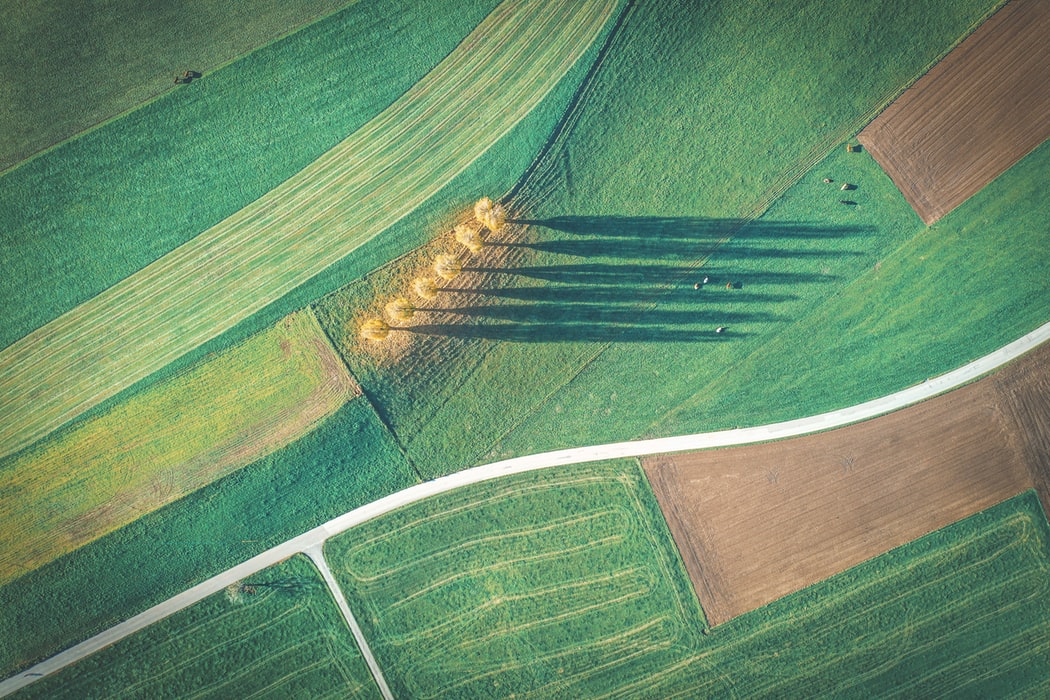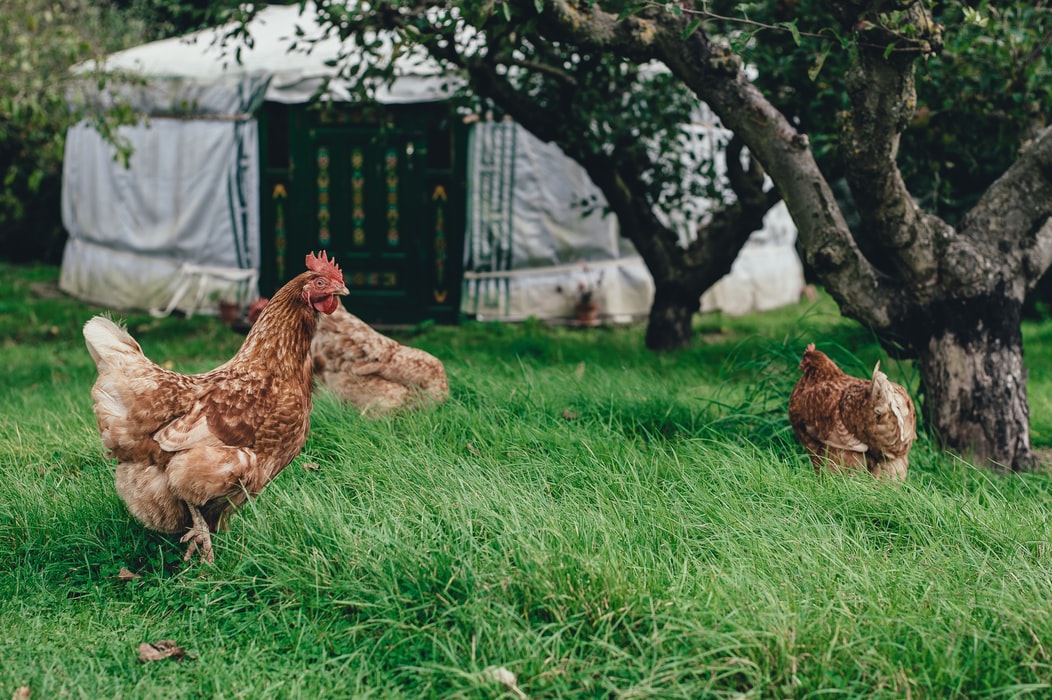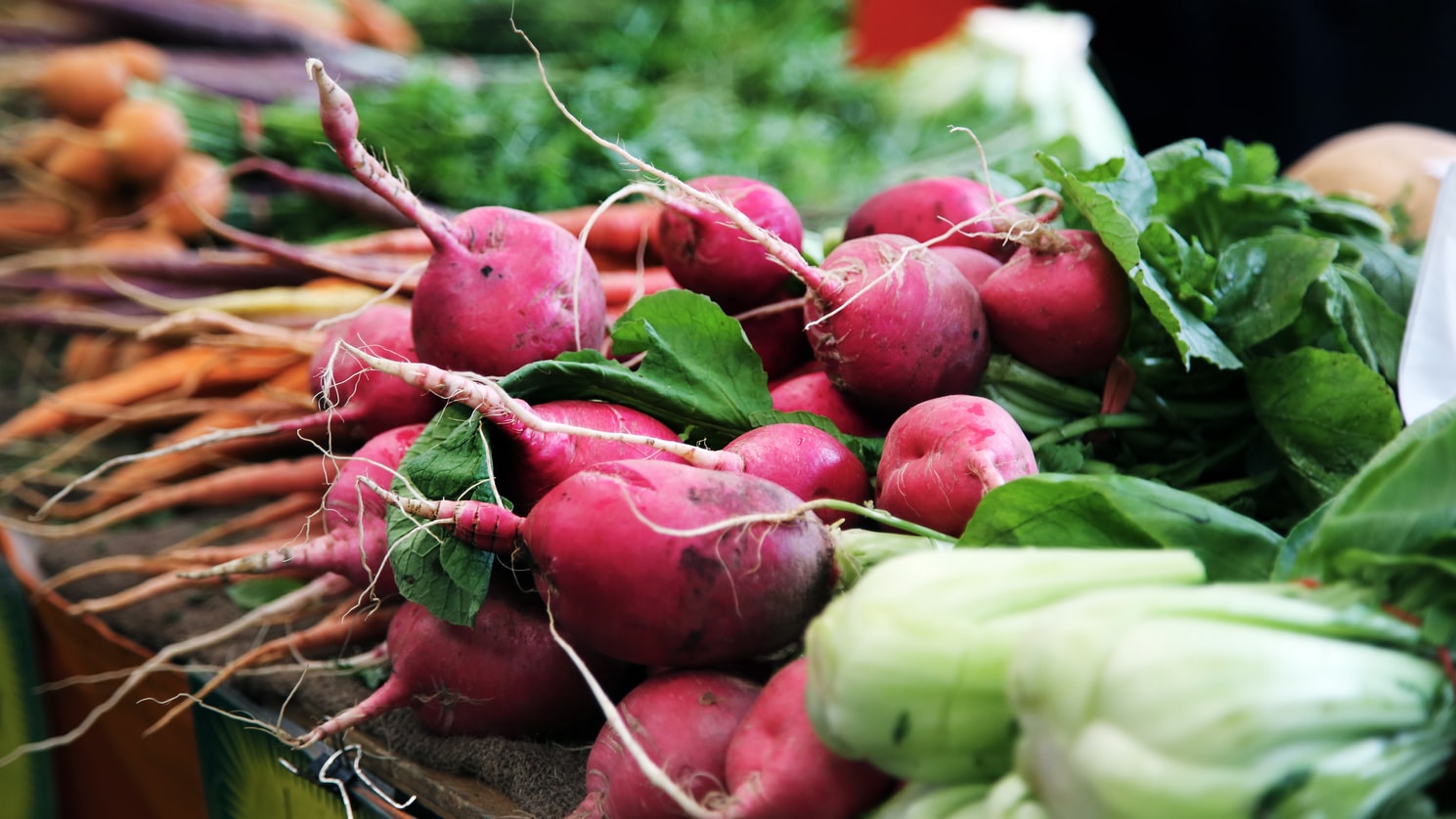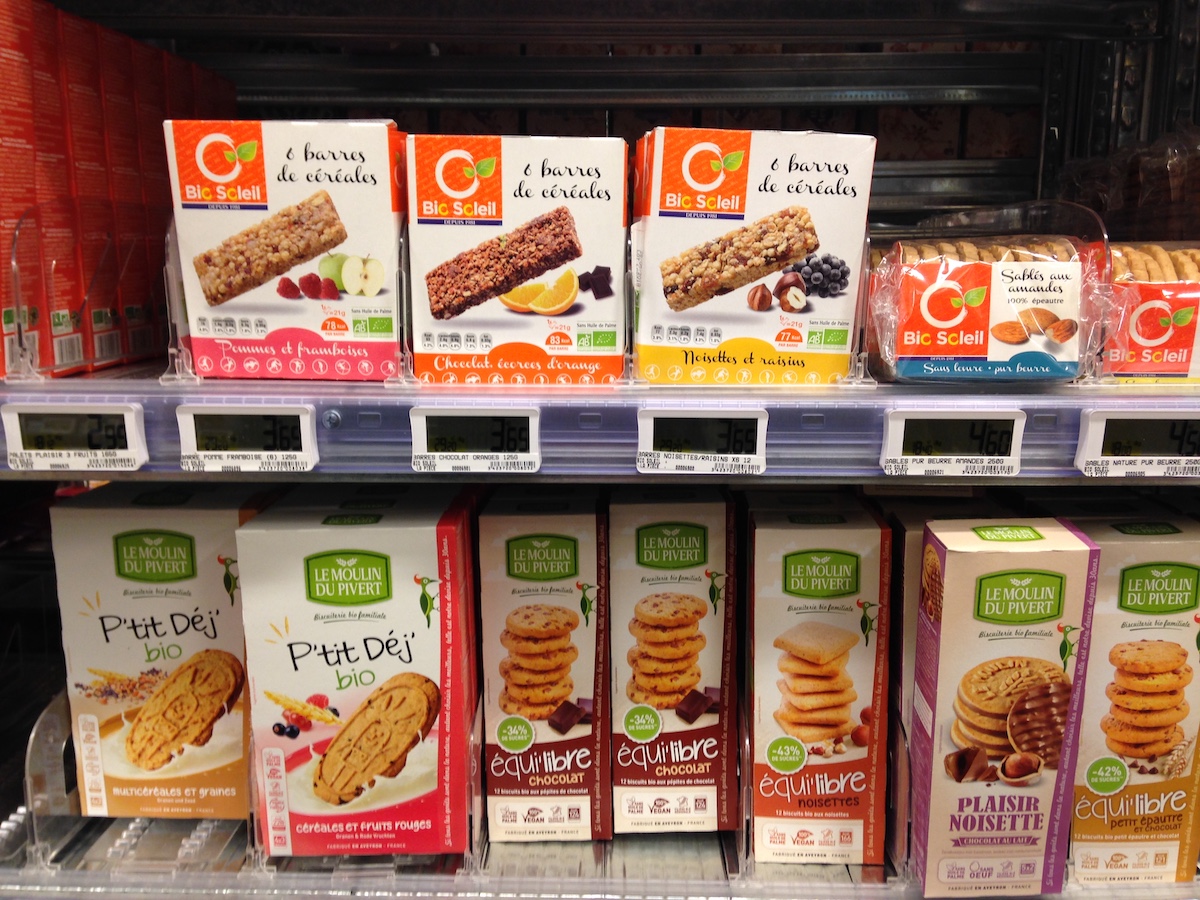Do you want to buy organic but get discouraged wondering whether the label means anything anymore? What do you do when you care about your family’s health as well as the planet? Read on to find out how I go about making my choices.
But first, a brief history lesson…

The origins of organic
The term organic farming first became popular in the mid-20th century as a reaction to industrial agricultural practices.
Like much of Western civilization, conventional agriculture takes a reductionistic view of nature and soil fertility, basically treating nature like a machine that can be maximized to get the highest yield possible. And to do that, it relies on the use of artificial fertilizers, chemical pesticides and huge expensive machinery.
But in reality the natural world is infinitely more complex, and industrial practices with their short-sighted vision have had disastrous consequences for the environment and human health.
They’re responsible for deteriorating soil quality, erosion (according to some estimates, we may run out of agricultural topsoil in France in just a few decades!), and a dramatic impact on biodiversity: there’s been a 30% decrease in birds in France in just the last fifteen years alone.
Of course humans aren’t spared. I think it’s safe to say there’s no human population today that’s protected from the ill effects of environmental toxins, specifically pesticides.
It’s all truly mind-boggling.

“Genetically modified organisms, nanomaterials, human sewage sludge, plant growth regulators, hormones, and antibiotic use in livestock husbandry are prohibited.”I don’t know about you, but I’m certainly interested in avoiding that stuff in my food!
I think it’s safe to say there’s no human population today that’s protected from the ill effects of environmental toxins, specifically pesticides.
The promise of organic
The promise of organic agriculture was to overcome the damages of conventional agriculture by introducing more traditional practices like crop rotation, composting, limited tillage and using natural fertilizers like manure.
But it went way beyond that. The term organic designated not only a way to grow food crops and livestock but also an alternative lifestyle — one where society would become more community-oriented, and the relationship between those who produced the food, how they produced it, how it was distributed and how people consumed it would recover all its meaning.
The 1960s and 70s saw an organic movement that was a countercultural movement, meant to provoke nothing short of a revolution.

“Modern” organic
But unfortunately, the spirit of organic has pretty much been lost since those heady days.
As most things in the modern world, when organic grew in popularity, economic incentives meant that it also became a huge industry that replaced the bucolic farms it once promised. It also had to be regulated, became a certification with clear legal guidelines, and things became a whole lot less holistic.
Today our organic standards do not always represent the ideals of those early days.
And like all industrial food systems, large-scale industrial organic food production is also rife with problems. Huge fields of monocrops are always problematic — organic or not.
There’s also the permitted use of “natural pesticides” which can be quite controversial, as well as problems with quality control, especially for organic imports.
Organic is no guarantee against… crap!
And let’s also call a spade a spade, shall we? One of the results of organic becoming mainstream has been the fact that you can find products on organic store shelves today that are often not that different from the conventional stuff.
Today there’s all kinds of processed food that is organic… which is clearly far from being “revolutionary”!

What I recommend
As you can see, today there are a ton of problems inherent in BIG ORGANIC. But knowing that, I would still encourage you to stick to the SPIRIT of organic as it was originally meant.
In fact this is arguably more urgent than ever today. I for one lose sleep over what kind of planet we’re leaving to our children and how much longer the planet can really support our destructive industrial practices.
So here’s how to go about that:
Be curious about where the food on your plate comes from! This means going smaller and eating with the seasons as much as humanly possible. Of course when you live in Europe the coffee and chocolate has to come from somewhere else but do you really need to be eating pears and tomatoes from Argentina in the winter??
Choose local foods as much as possible. A piece of organic fruit that’s flown in from halfway across the world is not a better choice than vegetables from a local farmer who doesn’t have organic certification but may be using traditional practices.
Grow your own food even if it’s just on the balcony! Allow your kids to have that experience firsthand themselves.
Get to know your producer – sign up for farm-to-table schemes like Community-Supported Agriculture (CSA), which is called AMAP in France, as well as local farmer’s markets.
Shop at organic chains (Biocoop etc) that have stricter regulations than the conventional organic certification. I personally tend to shy away from “big box organic” – not saying don’t do it, but do ask questions.
Don’t forget, the precept of eating real food still stands. Sourcing your fresh produce and meat well is an excellent idea but a packet of organic cookies is still… a packet of processed junk.
BOOK your free discovery call!

